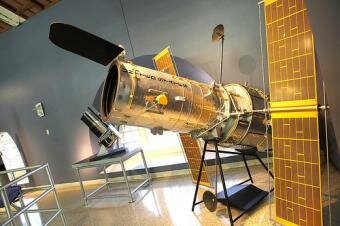A team of mathematical experts have said that 1729, which is also known as the Ramanujan-Hardy number, is linked to aspects of string theory and...

India’s dream project took off today when the Indian Space Research Organisation (ISRO) launched the country’s first space research observatory- ASTROSAT. With this, India will be able to carry out space expeditions with improved technology and contribute to International space research.
India also launched a number of US satellites on Monday along with the observatory. India has now entered the $300 billion global space industry. The observatory will enable deep rooted research on celestial objects and star systems.
"This launch ... is important for astronomical sciences. We look forward to prospective research," said Harsh Vardhan, India's Minister for Earth Sciences.
A total of six satellites, including four for the United States, were launched one hour before the official launch of the observatory. Minutes before the launch, Indian Prime Minister, Modi, ended a meeting with the US President Barack Obama.
Earlier, last year, India had launched its economical Mars mission and the new Prime Minister has been all praise for the Indian scientists ever since.
In December 2014, India successfully tested a new rocket named the Geosynchronous Satellite Launch Vehicle (GSLV) Mark III. This rocket has the potential to put heavier payloads into space. However, it has not yet been rendered functional.
The Indian scientists have been looking at ASTROSAT as a tiny version of the NASA's Hubble Space Telescope. The latter is capable of identifying objects in multiple wavelengths including X-rays.
Mayank Vahia, a researcher from Tata Institute of Fundamental Research, said that ASTROSAT will be controlled through Bangalore and all data will be received at the centre in the city.









